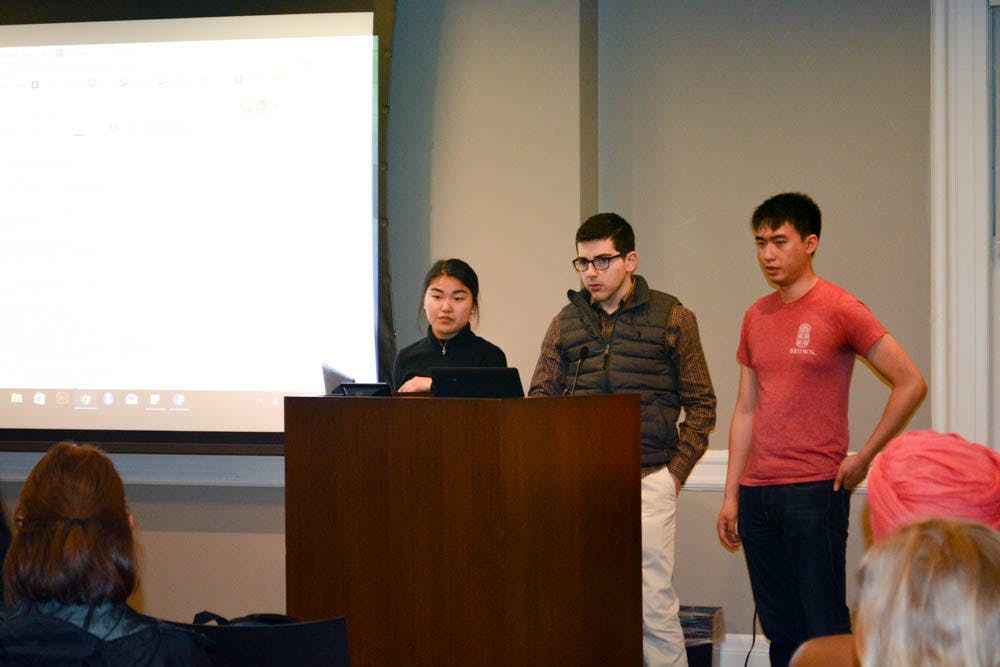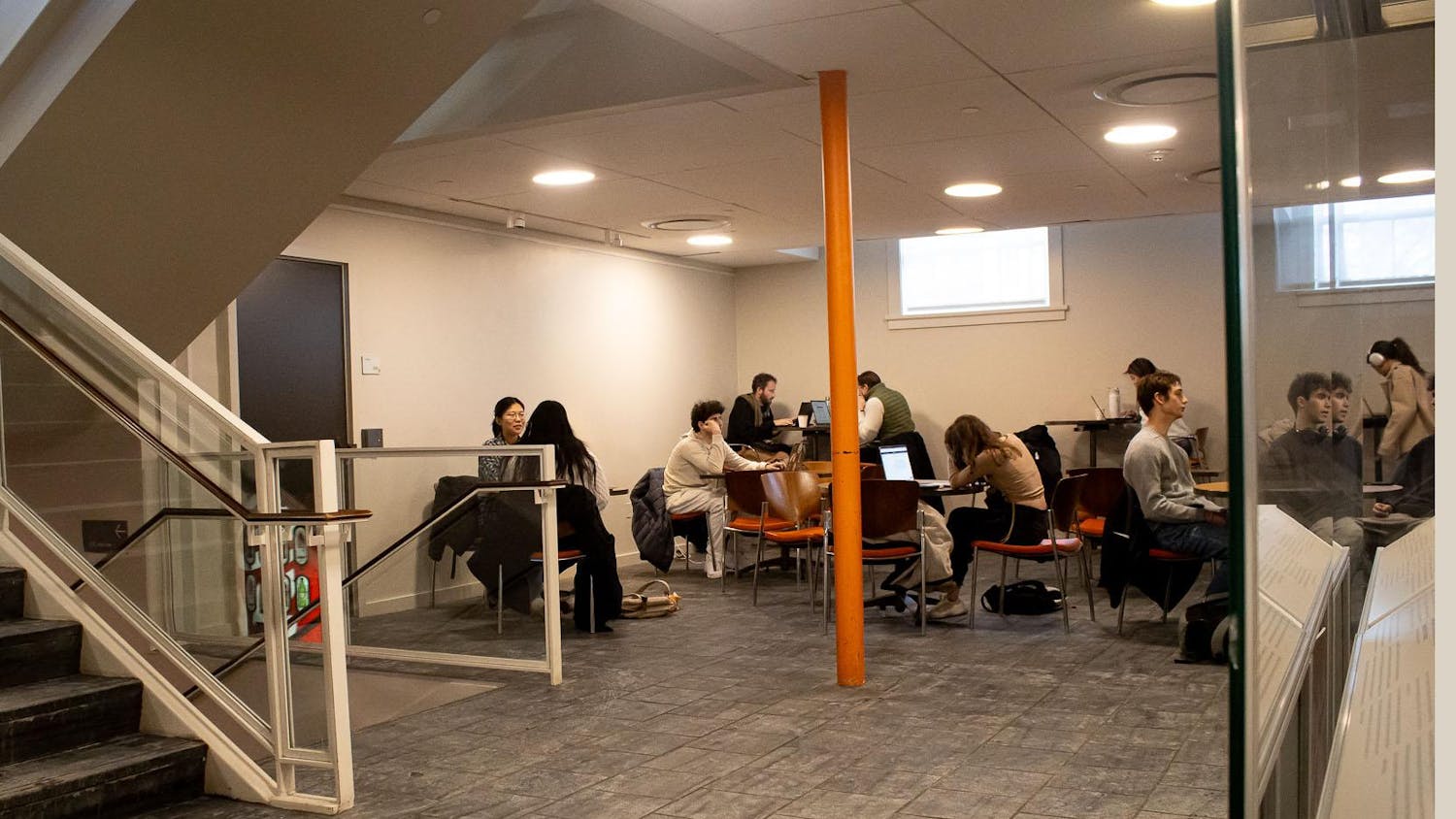At Wednesday’s general body meeting, the Undergraduate Council of Students tabled voting on a proposal from the Undergraduate Finance Board that recommended that the University Resources Committee raise next year’s student activities fee by $21 per student. UCS will delay the vote until an emergency voting meeting can be held for further discussion.
All undergraduates must pay the student activities fee, which goes to UFB for allocation to fund various student clubs. For the current 2017-18 academic year, the fee was $274 per student, bringing UFB’s budget to $1,731,680, according to UFB’s proposal. The board recommended the fee increase to $295, raising the group’s budget by $138,000.
To determine their funding, student groups are divided into three categories, all of which go through a UCS approval process. Category I groups do not receive baseline funding, while Category II groups receive a $200 baseline funding per semester and Category III groups receive the same funding and can apply for additional supplemental funding from UFB, according to the UCS website. Supplemental funding can range between thousands or even hundreds of thousands of dollars, according to a 2014 UFB release of budget allocations.
According to UFB’s constitution, the group can recommend a raise in the student activities fee to UCS, but only UCS can recommend it officially to the URC. The URC, a group made up of administrators, faculty and students, recommends the annual operating and capital budget to the president.
UFB’s budget did not increase last year but has regularly increased in the last decade, said UFB Chair Yuzuka Akasaka ’18 and UFB Vice Chair Drew To ’19. In 2007, for example, UCS voted to raise the student activities fee by $54 in a voting session, The Herald previously reported.
This year’s resolution was drafted by Akasaka, To and other members of UFB with help from the Student Activities Office.
Akasaka and To said that UFB currently operates at a $130,000 deficit due to an influx of clubs previously funded by various academic departments.
“We have had more groups from the engineering department and from various departments across Brown University join UFB’s categorizing process, and now they are up for budgeting,” To said. “However, we don’t have the necessary funds to fund all these groups and our current Category III groups.”
These include groups that “were categorized or backed by departments” and then needed funding from UFB without notice, Akasaka said.
According to the resolution, the group now has to fund seven Category II and three groups “previously funded by the Department of Engineering and service groups funded by the Swearer Center.”
When asked by a UCS general body member whether UFB’s allocation of funds to student groups is public, Akasaka responded that some parts of the budget are and others are not.
Akasaka and To said that $20 out of the $21 per student increase — or $130,000 out of the $138,000 raise — would be used to cover the existing shortage that UFB currently faces.
However, in a strong display of opposition to the recommendation, various general body members expressed the need for more information before voting to approve the recommendation.
“Without having received more time to discuss this with more students on campus, it seems like a hard decision just to make with this small student body,” said Lisa Schold ’19, the current UCS-UFB liaison. Though she is on UFB, Schold had not seen the resolution, she added.
Additionally, several UCS general body members were concerned that a $21 increase would affect low-income students.
Students also asked questions about the funds that UFB pays to the Department of Public Safety, the Fire Marshall and the Computing and Information Services, among other groups. According to the resolution, UFB payed those groups $377,600 in the current year — $78,000 more than the prior year.
“I think there is a need for that to be more transparent,” Schold said, referring to this funding of administrative departments.
Category III student groups requested approximately $1.44 million in the 2016 spring budgeting process, but UFB was only able to grant $1.29 million for the 2016-17 academic year, according to the resolution.
UFB also spent $98,200 to fund programming by the Brown Center for Students of Color, LGBTQ Center and Sarah Doyle Women’s Center — even though they are not organized by student groups recognized by UCS — because the centers did “not have the funds to support these events,” according the resolution.
“A shortage of funding means student groups cannot maintain the programming level that students have come to expect and enjoy on campus,” according to the resolution.
Though Akasaka and To urged the council to approve the recommendation, several UCS members did not feel comfortable voting on the resolution.
“I think it’s difficult for a group of — how many voting members, like 20 of us — that don’t represent the wide diversity of socio-economic status of Brown necessarily to vote on this,” said Camila Pelsinger ’20, chair of the committee on campus life.
UCS President Chelse-Amoy Steele ’18 reiterated many of the concerns that members had.
“Perhaps there needs to be a larger discussion with particular groups on campus, specifically low-income students, about how this would affect them,” Steele said.
UCS members voted to table the discussion and hold an “emergency voting meeting” in the near future. The resolution must be approved or rejected soon to meet URC deadlines, Akasaka said.





